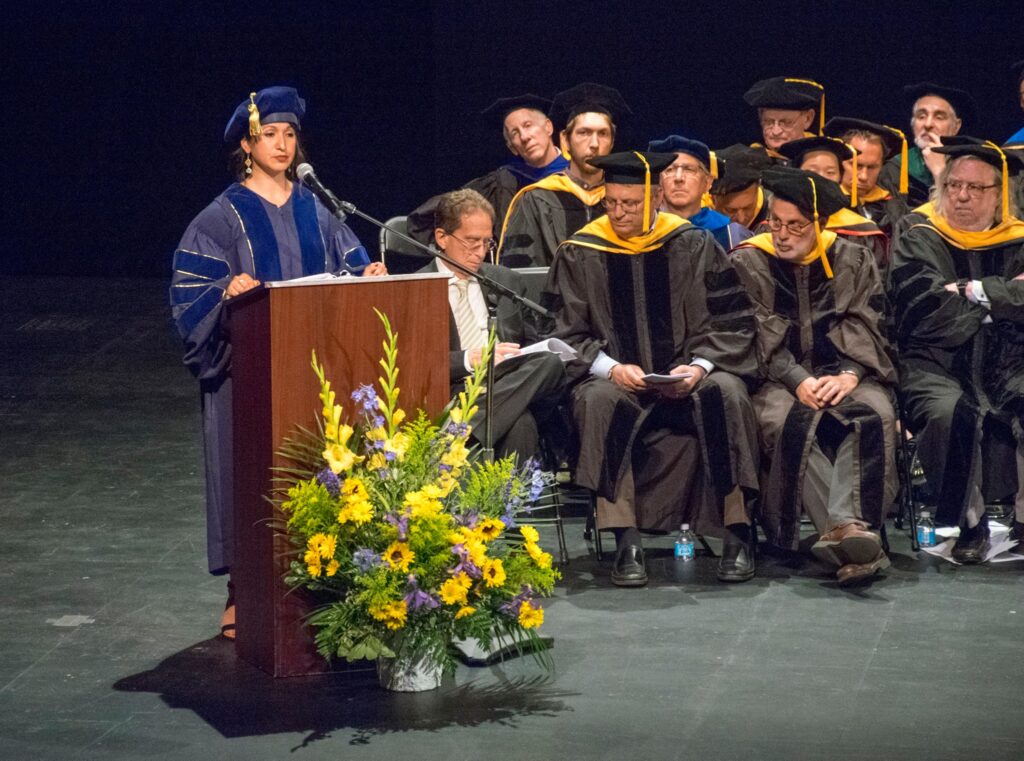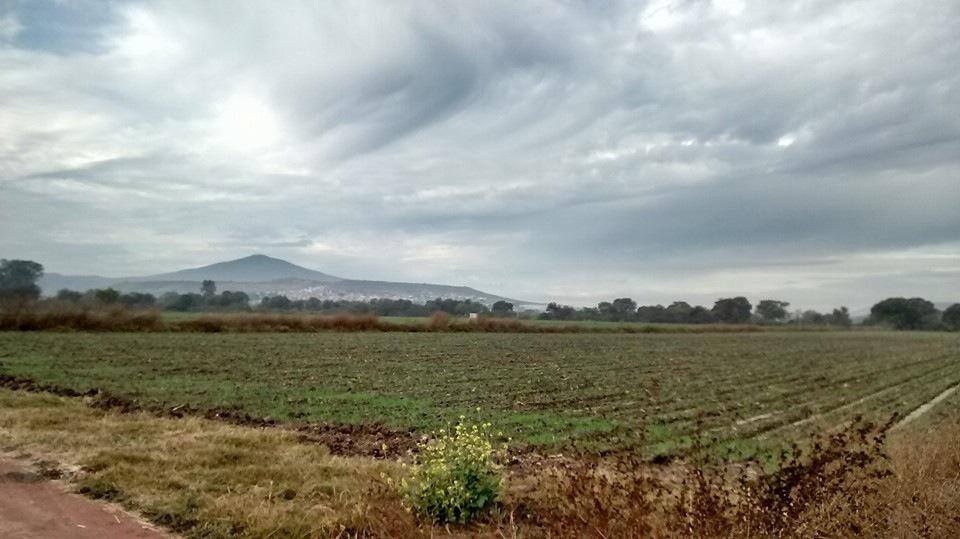Molecular and Cell Biology and Biophysics Ph.D. Graduation Ceremony, University of California, Berkeley.
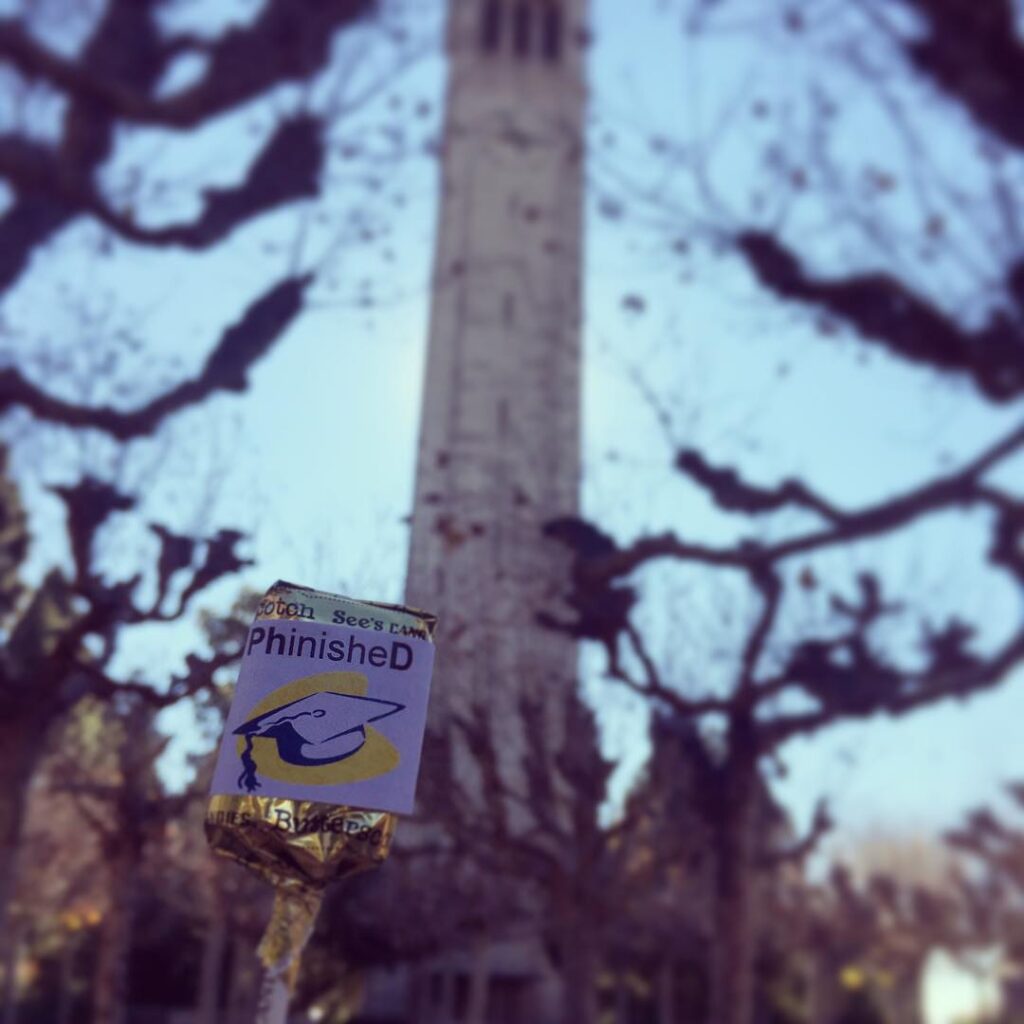
Dear faculty, family and friends, thank you for being here today in this important moment of our lives and careers. Dear fellow graduates, congratulations! This is an important milestone that we’ve conquered. Graduate school can be a long and difficult path. It is a life-changing journey! We came in with a set of hopes and desires, and being admitted to this university, I am confident each of you were singularly prepared to face the upcoming challenge. However, along the way you probably were tested in one-way or another, either scientifically, professionally or personally.
During our time in graduate school, many of us saw our college classmates earn three times our salary while we struggled with failed experiments. Although that struggle can often be demoralizing, I urge you to not underestimate its value; that struggle is the reason that makes this journey so formative. It forced us to think deep and carefully about the meaning of our work, about its value to society and for the people we love. It also forced us to ask ourselves: why are we harnessing this knowledge? In a few moments, we will be granted our degrees because we have contributed to the understanding of fundamental biological processes. In some cases, we developed breakthrough technologies that will change the game of medical treatments; we have become experts of scientific and technological endeavors that will have significant and positive impact in the world. And yet, during our journey through graduate school, it is common to reach a point where we loose perspective and we forget why we decided to do this in the first place.
Today, I want to remind you why we embarked on this path. We came to grad school because we wanted to be great leaders and the best scientists, and I will argue that UC Berkeley has given us the best environment to become exactly that. To begin, you’ve been educated at UC Berkeley, a top ranking university and one of the best research centers in the world! We can be confident that we are equipped with the knowledge required to be good leaders and good scientists. However, ‘great’ leaders and ‘great’ scientists are much more than that. That next level is achieved with human integrity, and fortunately, that integrity permeates UC Berkeley. And since you spent many years in this university, it is likely that you’ve grown to become a more humble, resilient, compassionate, inclusive, tolerant and
critical human being. Perhaps you have joined the community of people that strive for justice, the right of free speech and equality. Congratulations, you are a true Cal Alumni!!
Personally, I believe I was admitted to UC Berkeley because the characteristics I just mentioned are the defining traits of this university. At first I thought my path was unusual, but as I reflected more deeply on my story I have realized that it has much in common with those of many Berkeley graduates, and today, while I have your attention, I’d like to share with you my journey as a testament of the values that define this institution.
I was born and raised in rural Mexico to parents without higher education. I attended elementary and secondary school in my hometown, a small city that you wouldn’t recognize by name if you asked me for it. Because my family struggled financially, I was not able to enroll in extra-curricular activities that would make me stand out from my classmates. However, my father, a farmer who did not finish secondary school, had a natural intelligence and appreciation for knowledge. He bought a toy microscope and a toy telescope for me and my siblings to nurture our curiosity at our young age. Also, I was lucky that the Mexican government subsidizes college, and thus, after I graduated from high school I moved to a bigger city to get a bachelor’s degree. Throughout high-school I had been in love with biology, but during college I majored in physics and math because my older brother advised me to try the ‘hard sciences’ first. You see, my older brother, who later became an astronomer, was the first in my family to earn a college degree but he didn’t really know much about the field of biology. And, though I excelled at my studies in physics and math, I quickly found that it would be very difficult for me to pursue my interests in biology. My teachers and professors might have heard of biophysics, but that was a young and exotic field of study. Without any luck, I moved to different states within Mexico to find an institution that could offer any courses that would match my interests. It wasn’t until I had knocked on doors of the best universities in Mexico that I found that Biophysics was an under-developed discipline, and once this became clear to me, I started looking outside of my country.
Many of us, foreigners, would not have left our home countries if we would’ve had the opportunities we were looking for. Personally, I did not want to leave Mexico. I still remember the moment that I asked myself: what if I go abroad to study Biophysics? To be honest, it sounded like a crazy project. After all, my family did not have money to pay for it, and I had never been out of Mexico in my life. Nevertheless, I did not relent; I discovered that Mexico offers good fellowships for graduate programs in world renown universities. These universities have the best programs at the frontiers of science, and many are located in the US. Given that Mexico and the US are neighboring countries, it might seem an obvious choice to apply to a university in this country. However, to me it seemed there was a big barrier that I would have to cross. To begin, I was not very fluent in English. I was doubtful that my application, coming from such a small university in Mexico would be considered seriously, and I was terrified of the racism that, in my mind, permeated the US. This wasn’t a fear only I held. The belief that racism permeates the US is a prevailing belief in a big portion of the Mexican population. Therefore, instead of applying to the universities in the US, I considered going to Spain. I imagined that Spain would be a more developed country than Mexico, with better education programs and more opportunities closer to the frontiers of science. I also imagined that our shared history and language would make it easy for me to transition into a new lifestyle. Unfortunately, I encountered that Spain is divided from within, and although it is a beautiful country with amazing and warm people, as a woman with darker skin and indigenous heritage, I did not feel respected and experienced resistance trying to integrate into their culture. Thus, after I finished a 1-year master’s program in biomathematics, I went back to Mexico.
Back in Mexico, I started a second master’s, this time, in experimental physics. During this time, armed with the skills I had acquired, I started developing new physical tools to study biological systems. At the same time, my vision had expanded while living abroad, and I became acutely aware of the social problems that permeated my own country. Despite the high genetic diversity, Mexico is full of self-limiting beliefs that manifest in colorism and classism. I remember being harassed sexually by a professor in my department that felt too comfortable to come to my office drunk to make inappropriate comments. Sadly, in Mexico it is too common for women in science to get used to these events. I talked about this with my friends and avoided future interactions with this professor, but I did not report him to the university authorities because I knew I would get in trouble and I wanted to avoid retaliation.
By the time I had finished my second master’s degree, I still felt propelled to pursue graduate studies in Biophysics. I also felt more confident in my qualifications and I had been exposed a little more to Biology. Thus, for the first time I considered to come to the US for graduate school. I sent my application to UC Berkeley, and I hoped for the best… You can imagine, I was extremely excited when I heard that I had been admitted, but soon enough I found I had conflicting feelings and doubts. Don’t get me wrong, I was delighted to have this opportunity. I felt like an athlete that wanted to push herself to the limit, and I was about to find out exactly where those limits really were and stretch them to outgrow them. However, I was very nervous as well, because I did not know what to expect. I kept wondering: am I smart enough for this place? Will I be able to perform as I should? Will I be treated fairly even though I am a dark-skinned woman doing science?
After 6 years in this university, I am amazed at how much my vision has changed, and now I understand why I fit in perfectly here, and why I was admitted to Berkeley. UC Berkeley is a very special place, and an institution that highly values diversity and equality, an institution with a big commitment to support underrepresented minorities. At UC Berkeley, I have always been a foreigner, but only one among so many others. Everybody here is different in some respect. Some of us are Mexican, French, German, Turkish, Spanish or American, we are Women, Men, Gay or Muslim, and yet we all cohabitate together with a deep sense of respect for our differences. Before being a dark-skinned Mexican woman, I am a scientist whose work deserves to be taken seriously. I am a human that deserves to be heard, and whose preferences and lifestyle must be respected.
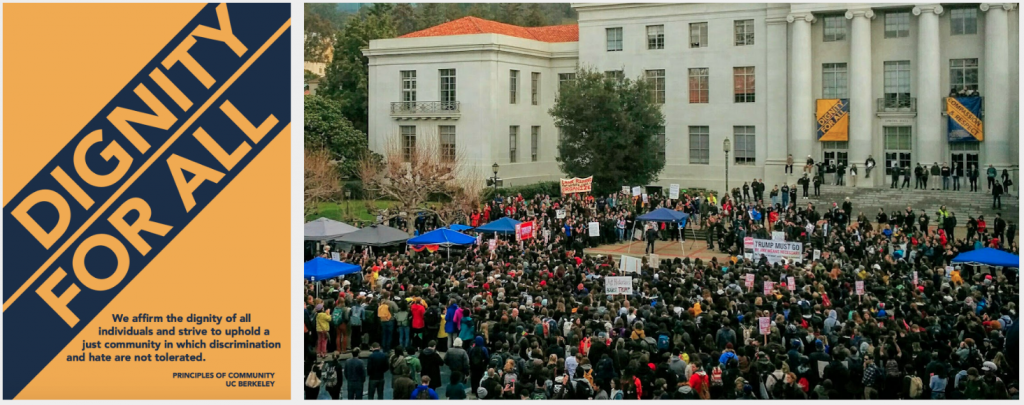
These days when I go back to Mexico, I take pride in saying that at UC Berkeley I have never been discriminated by race, gender, sexual preference or social status. I also like to tell my Mexican fellows that I have found that Americans like to learn to speak Spanish and about Mexican culture more often than not, and that I work surrounded by inspiring faculty women doing incredible science side by side with other men scientists who also come from many different backgrounds.
We should not forget the special place that we are leaving, and as we part, we should embrace the values held by this institution, especially now, given the current political environment. We should also be aware of the strong commitment that this university and its faculty are undertaking to compensate for the many years of social, racial and gender inequality, without compromising on the high level of standards that characterizes UC Berkeley. This is a daunting task the admissions’ committees and faculty face every year! We should also keep in mind that many of the perceived differences between social groups come from our own culture and how we live everyday at home. When we leave this university to do great science in other institutions, to develop new technologies, to open new businesses, to lobby for new policies, to change the world with our knowledge and with our skills, we must remember that we have the responsibility to inspire the generations to come, to be fair mentors, employers, parents and teachers. We must be tolerant. We must look beyond nationality, religion, sexual preference and skin color. More than anything else, we need to be compassionate and understand the history behind every person. We should be asking ourselves: where would I be if I were given the opportunities that this person was given? If I was this person, how would I like to be treated?
Personally, I am thankful for the opportunities that UC Berkeley and my advisor, Carlos Bustamante, gave me as a scientist, as a woman, as Mexican and as a human being. I will live up to the values that Berkeley has taught me and I will pay back in whatever way is possible. What will you do when you leave Berkeley, and what Berkeley values are you taking with you?
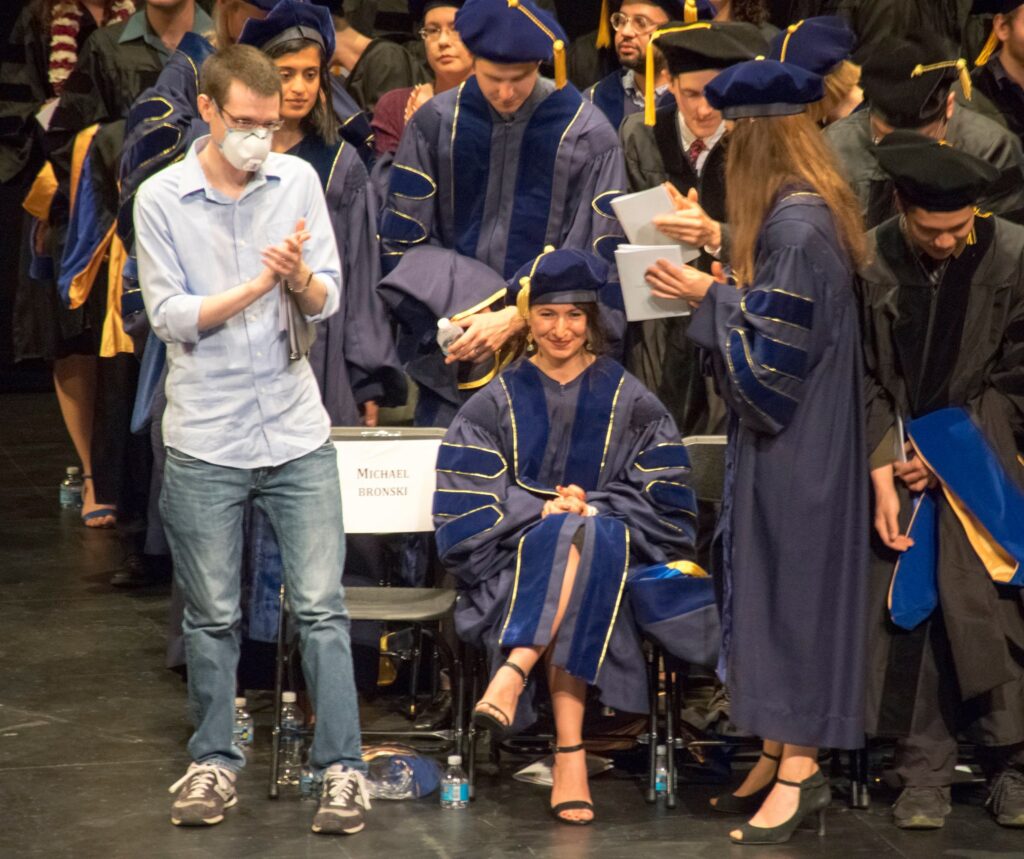
Sara Tafoya is a young professional and mother. A biophysicist by training, a ceramist by heart, an aspiring author and a chocolate enthusiast. She spends her time thinking about biotechnology and art, singing lullabies and making sense of her life experiences.
